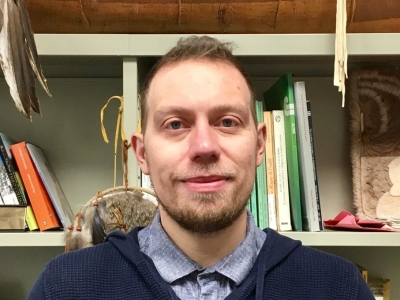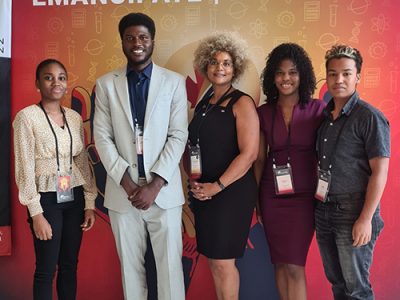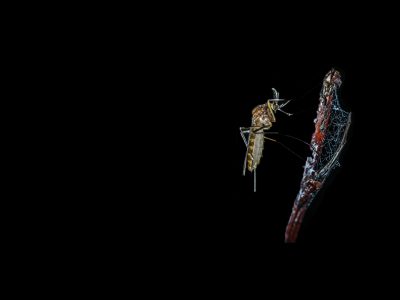Carleton Breaks Ground on Health Sciences Building
By Kirsten Fenn
Photos by Justin Tang
Carleton University is building on the future of some of its newest and most popular programs as it breaks ground on construction of a $52-million Health Sciences Building.
The seven-story, 120,000-square-foot building will house the Health Sciences and Neuroscience programs at the south end of what has long been a parking lot in front of the University Centre and Steacie Building. Occupancy is set for August 2017.
“Newer programs like Neuroscience and Mental Health and the Bachelor in Health Sciences are growing quickly,” says Malcolm Butler, dean of the Faculty of Science. “The new building will accommodate that growth into the future.”
Carleton launched the Bachelor of Science in Neuroscience and Mental Health in 2011, followed by the Bachelor of Health Sciences in September 2014. The new building will provide fresh teaching and learning facilities and reduce strain on space faced by the two programs.
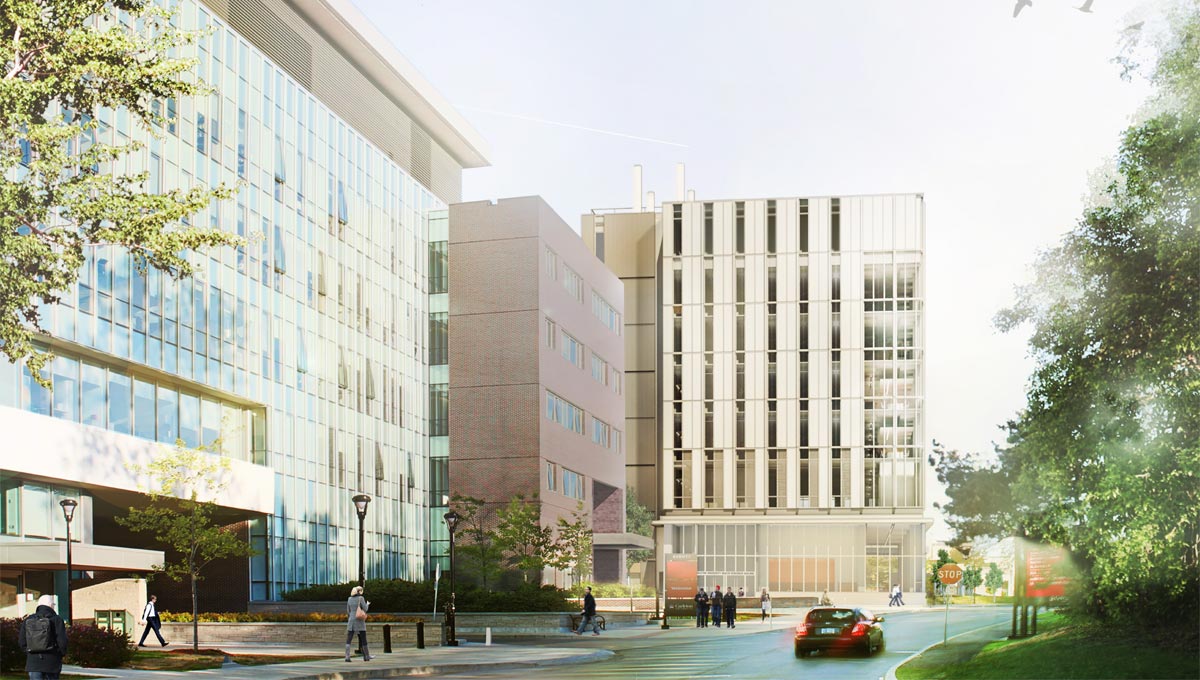
The building is a logical leap for a campus that, despite having no medical school, has come to specialize in health-related programs that will contribute to solutions for urgent health-related problems.
“We need new approaches across the board and we need them today,” says Chris Carruthers, vice-chairman of the Board of Governors and a key champion of the building.
“Of course we need better diagnostics, treatment and prevention of chronic illness. But we also need new ideas in training for doctors, nurses and other practitioners. We need new policies for the access and provision of care. We need quicker innovation in technology and pharmaceuticals. We need more study of environmental and populations health. And we need public conversations about the route forward.
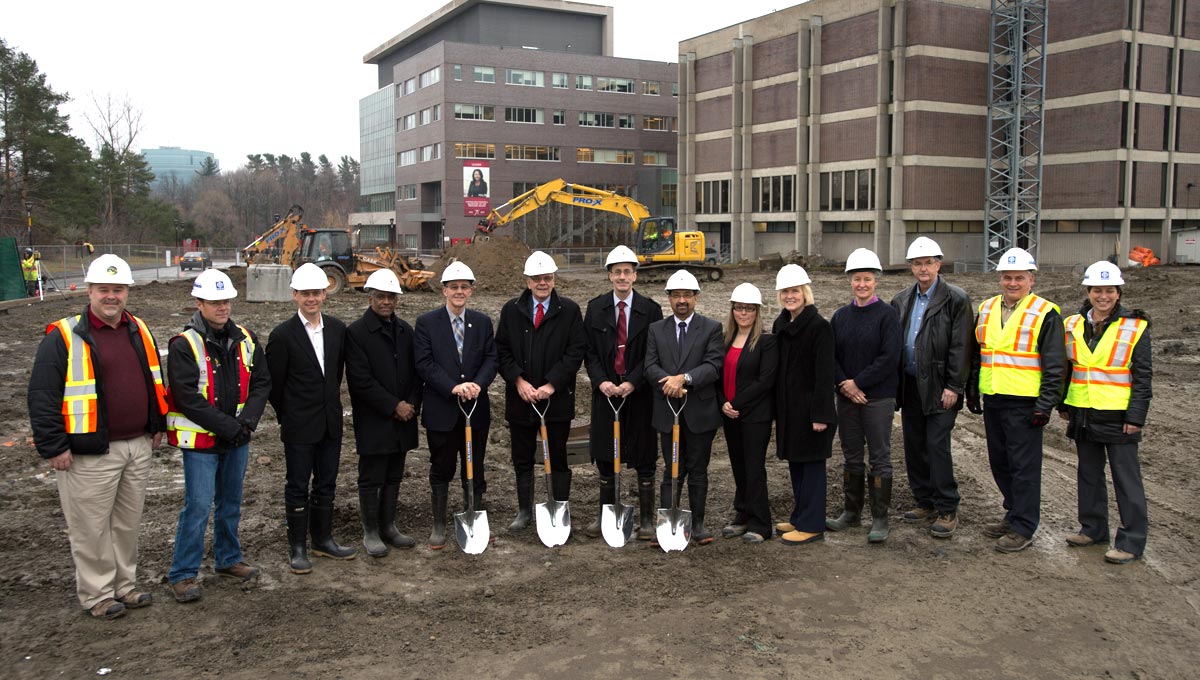
“We need all these things. And not all of them are available through a medical school education. When I learned about Carleton’s new program in Health Sciences, I thought: ‘Now this is how we can start fixing matters.'”
The Health Sciences Building will feature a mezzanine, a 350-seat lecture theatre, a new animal vivarium, a resource centre, and teaching and research laboratories, says Darryl Boyce, assistant vice-president (Facilities Management and Planning). An enclosed link to Steacie Building will connect the building to the university’s tunnel systems.
“Neuroscience as a department has never been able to offer its own labs before, simply because we haven’t had space to house them,” says chair John Stead. “The new building will open the door to allow us to now offer these labs. This is something that our undergraduates have been clamouring for.”
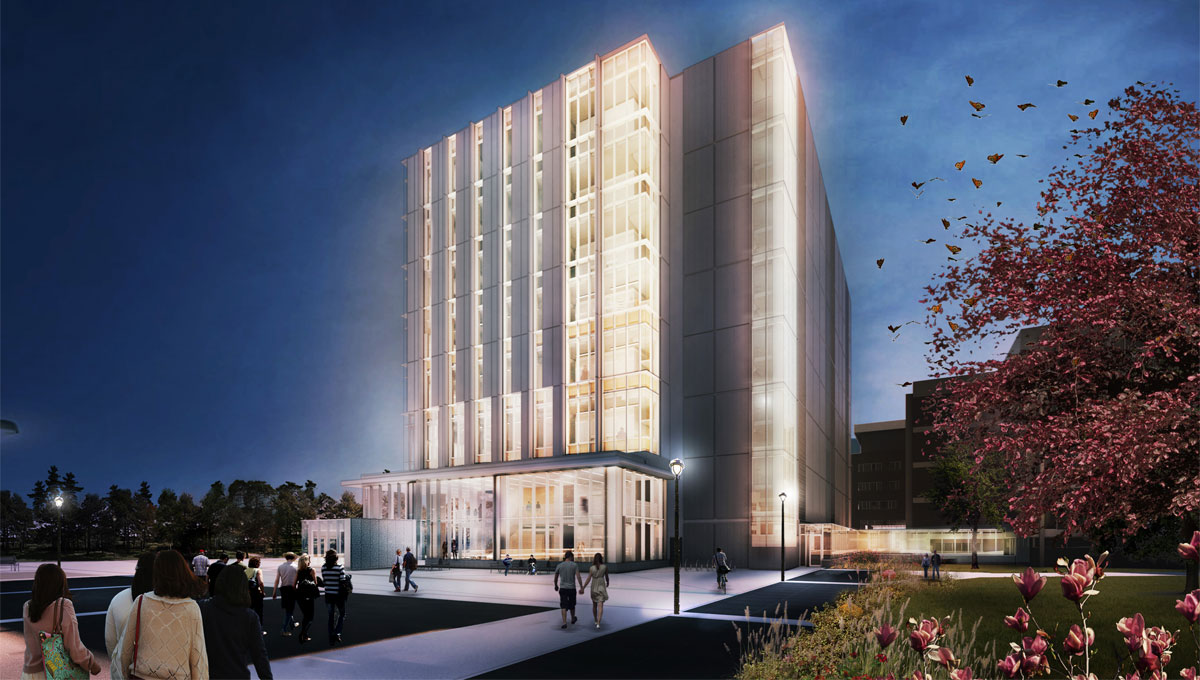
As opposed to closed-off individual labs, the building features open-concept labs which will be shared by researchers from both the Neuroscience and Health Sciences departments.
“New faculty members coming in see this as a very exciting opportunity,” Butler says. “They are coming out of their institutions with the expectation of this kind of openness.”
The goal is to stimulate conversation and collaboration between researchers and to provide students with experiential learning opportunities, he says.
Carruthers is leading the charge on fundraising to outfit the laboratories with essential and leading-edge technology, as well as money for student aid and internships.
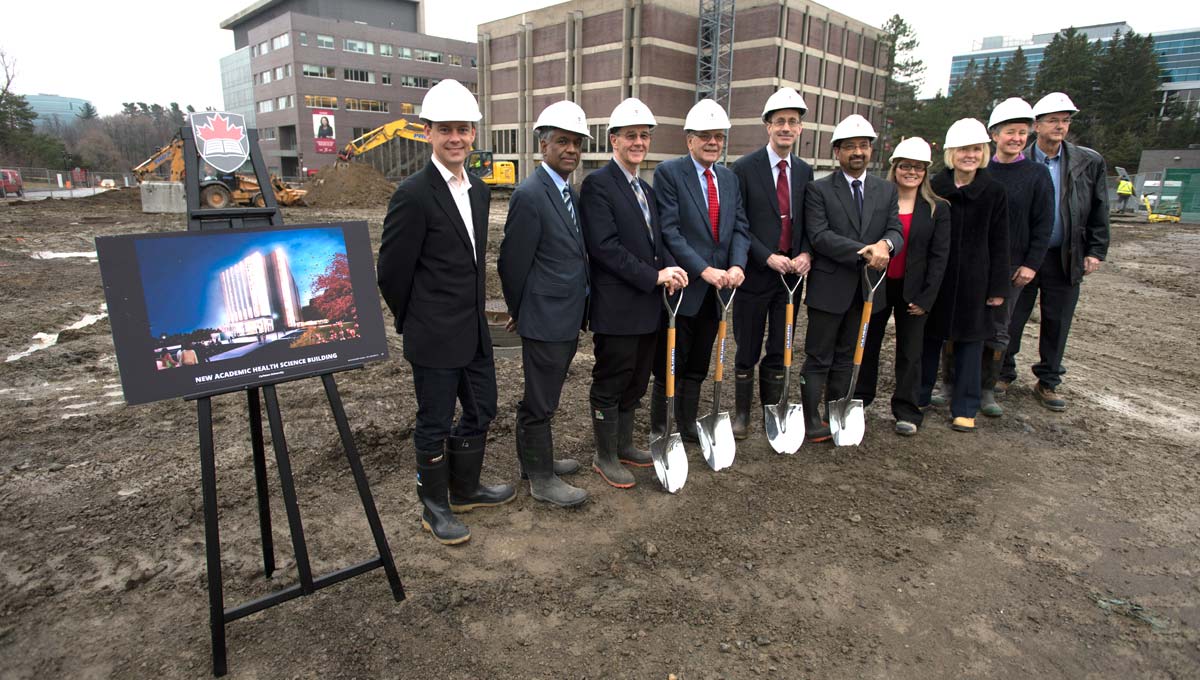
“The Bachelor of Health Sciences emphasizes alternate approaches to learning, including workshops, tutorials and labs, and students may engage in research internships,” says Susan Aitken, chair of the Department of Health Sciences.
“The location of teaching and research labs in the same building offers great potential for continued integration of these two pillars… and enhances our ability to provide hands-on experience to students.”
The fact that the new building will consolidate the programs in a single location creates potential for stronger ties between health sciences and neuroscience, Stead says.
“That is something we are very much looking forward to having.”
Tuesday, December 15, 2015 in Buildings, Faculty of Science, New/Unique Programs
Share: Twitter, Facebook
